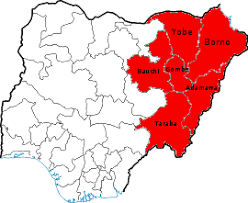Some stakeholders in the North-east have called for a review of the Post-Unified Tertiary Matriculation Examination (Post-UTME) used by tertiary institutions as part of their admission requirements.
Their views emerged in a survey conducted in Yola, Maiduguri and Damaturu on Friday.
Parents, students and education stakeholders in Yola described the exercise as burdensome, exploitative and risky for prospective candidates.
Mr Jude Godwin, a parent, said the Post-UTME was introduced due to declining standards in secondary education and the inability of the Unified Tertiary Matriculation Examination (UTME) to properly screen candidates.
“The basis for the Post-UTME was to help institutions select quality candidates. But in reality, it has become a window for schools to expand their revenue. Institutions charge between N10,000 and N20,000 per candidate, attracting thousands of applicants even when they already know the limited number they intend to admit. This is extortion because many students are subjected to stress, trauma and financial loss, only for a fraction to gain admission,” Godwin said.
He warned that travelling long distances to sit for the examination exposed candidates to risks such as accidents, kidnapping and other threats. He suggested improving the Joint Admission Matriculation Board (JAMB) system as a credible gateway into tertiary institutions.
Miss Helnaya Dunama, a student of University of Jos, lamented the financial strain the exercise placed on families, including travel and accommodation costs, while Alhaji Ahmed Dada, a retired Permanent Secretary in Adamawa, noted that Post-UTME gave universities an opportunity to filter candidates appropriately.
“On Post-UTME, universities have good intentions because it helps ensure only qualified persons are admitted to relevant courses. But institutions must avoid high charges and consider making the process free or minimal,” Dada said.
Prof. Abdullahi Adamu, Admission Officer at Modibbo Adama University, explained that the Post-UTME policy served as an additional screening measure, while Dr Idi Mohammed, Director of ICT at Yobe State University, said the school suspended the test in 2013 due to insecurity. Candidates there now upload their credentials online and pay a N2,000 processing fee.
Parents such as Mrs Sa’adatu Maina welcomed the suspension, describing the exam as an unnecessary duplication that caused hardship. Similarly, students like Jamil Maimadu argued that passing JAMB should be enough for admission.
Others, including retired civil servant Malam Buba Lawan, advocated reintroducing the test but in an online format to reduce cost and risk, while stressing its usefulness in managing oversubscription to competitive courses such as Medicine and Pharmacy.
Some stakeholders in Maiduguri, however, insisted that Post-UTME was unfair to candidates who passed JAMB but failed the institution’s own aptitude test. “If every university is going to have its own exam, then why do we even have JAMB?” asked Usman Abubakar of the Orphanage Care Foundation.
The debate reflected a wider division between those who see Post-UTME as essential for quality assurance and those who view it as exploitative and duplicative.
(NAN)


